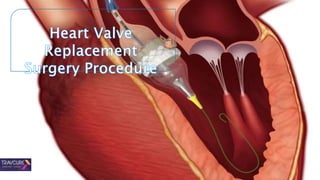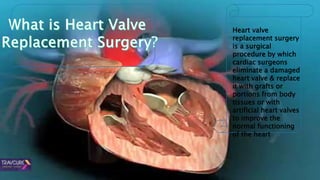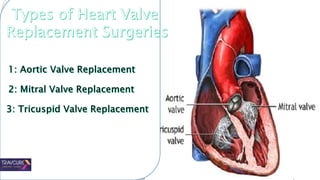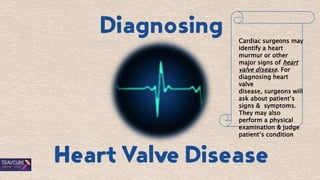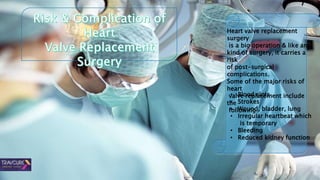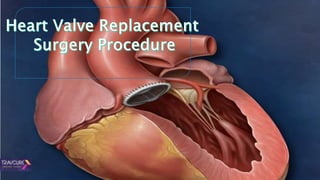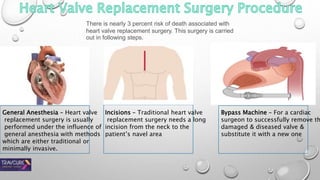Heart valve replacement surgery procedure
- 2. Heart valve replacement surgery is a surgical procedure by which cardiac surgeons eliminate a damaged heart valve & replace it with grafts or portions from body tissues or with artificial heart valves to improve the normal functioning of the heart
- 4. Cardiac surgeons may identify a heart murmur or other major signs of heart valve disease. For diagnosing heart valve disease, surgeons will ask about patient’s signs & symptoms. They may also perform a physical examination & judge patient’s condition
- 5. Heart valve replacement surgery is a big operation & like any kind of surgery, it carries a risk of post-surgical complications. Some of the major risks of heart valve replacement include the following. • Blood clots • Strokes • Wound, bladder, lung • Irregular heartbeat which is temporary • Bleeding • Reduced kidney function
- 7. There is nearly 3 percent risk of death associated with heart valve replacement surgery. This surgery is carried out in following steps. General Anesthesia – Heart valve replacement surgery is usually performed under the influence of general anesthesia with methods which are either traditional or minimally invasive. Incisions – Traditional heart valve replacement surgery needs a long incision from the neck to the patient’s navel area Bypass Machine – For a cardiac surgeon to successfully remove th damaged & diseased valve & substitute it with a new one
